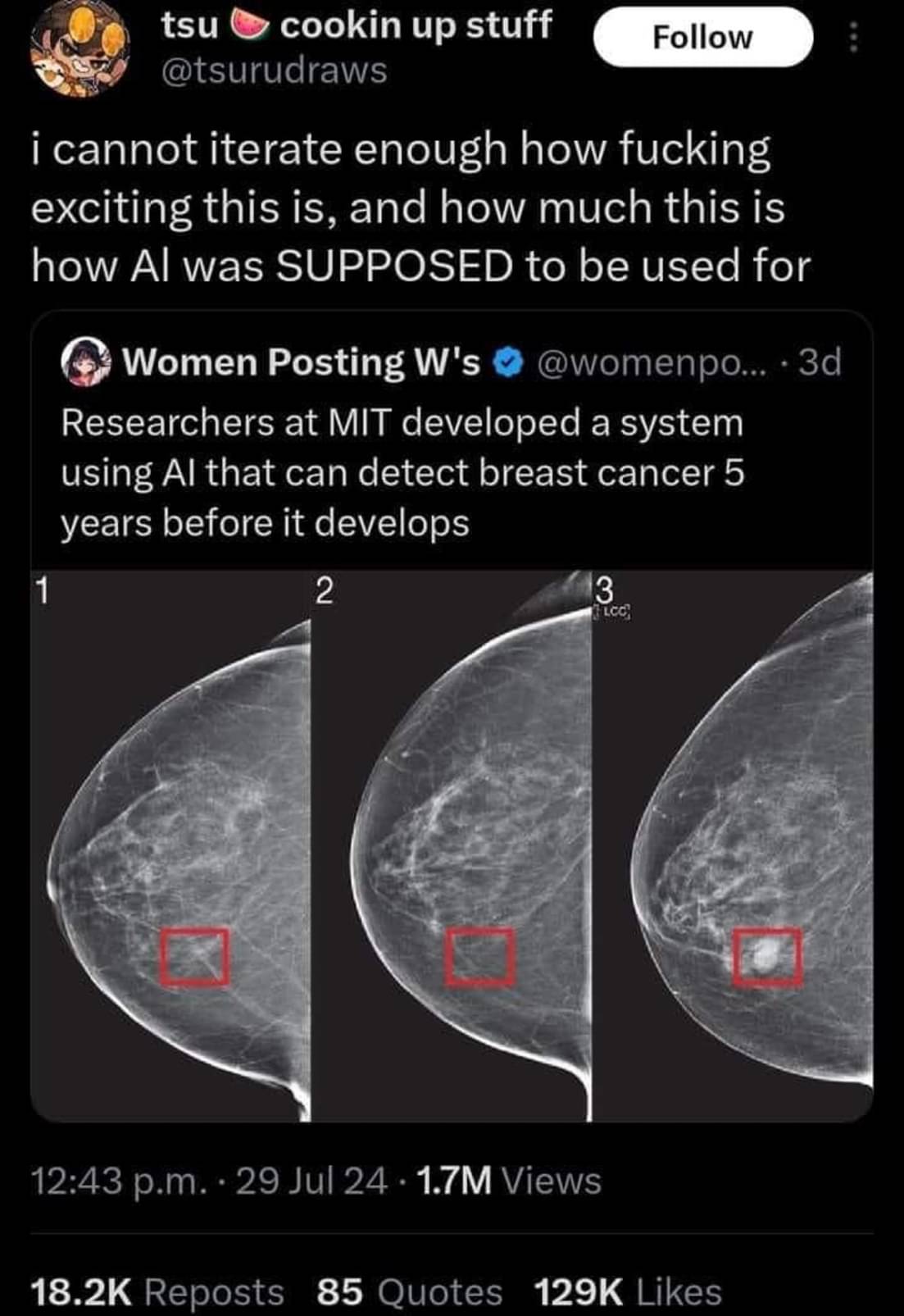this post was submitted on 02 Aug 2024
1469 points (98.4% liked)
Science Memes
11047 readers
3311 users here now
Welcome to c/science_memes @ Mander.xyz!
A place for majestic STEMLORD peacocking, as well as memes about the realities of working in a lab.

Rules
- Don't throw mud. Behave like an intellectual and remember the human.
- Keep it rooted (on topic).
- No spam.
- Infographics welcome, get schooled.
This is a science community. We use the Dawkins definition of meme.
Research Committee
Other Mander Communities
Science and Research
Biology and Life Sciences
- [email protected]
- [email protected]
- [email protected]
- [email protected]
- [email protected]
- [email protected]
- [email protected]
- [email protected]
- [email protected]
- [email protected]
- [email protected]
- [email protected]
- [email protected]
- [email protected]
- [email protected]
- [email protected]
- [email protected]
- [email protected]
- [email protected]
- [email protected]
- [email protected]
- [email protected]
- [email protected]
- [email protected]
- !reptiles and [email protected]
Physical Sciences
- [email protected]
- [email protected]
- [email protected]
- [email protected]
- [email protected]
- [email protected]
- [email protected]
- [email protected]
- [email protected]
Humanities and Social Sciences
Practical and Applied Sciences
- !exercise-and [email protected]
- [email protected]
- !self [email protected]
- [email protected]
- [email protected]
- [email protected]
Memes
Miscellaneous
founded 2 years ago
MODERATORS
you are viewing a single comment's thread
view the rest of the comments
view the rest of the comments

The AI developers understand how AI works, but that does not mean that they understand the thing that the AI is trained to detect.
For instance, the cutting edge in protein folding (at least as of a few years ago) is Google's AlphaFold. I'm sure the AI researchers behind AlphaFold understand AI and how it works. And I am sure that they have an above average understanding of molecular biology. However, they do not understand protein folding better than the physisits and chemists who have spent their lives studying the field. The core of their understanding is "the answer is somewhere in this dataset. All we need to do is figure out how to through ungoddly amounts of compute at it, and we can make predictions". Working out how to productivly throw that much compute power at a problem is not easy either, and that is what ML researchers understand and are experts in.
In the same way, the researchers here understand how to go from a large dataset of breast images to cancer predictions, but that does not mean they have any understanding of cancer. And certainly not a better understanding than the researchers who have spent their lives studying it.
An open problem in ML research is how to take the billions of parameters that define an ML model and extract useful information that can provide insights to help human experts understand the system (both in general, and in understanding the reasoning for a specific classification). Progress has been made here as well, but it is still a long way from being solved.
Thank you for giving some insights into ML, that is now often just branded "AI". Just one note though. There is many ML algorithms that do not employ neural networks. They don't have billions of parameters. Especially in binary choice image recognition (looks like cancer or no) stuff like support vector machines achieve great results and they have very few parameters.
Machine learning is a subset of Artificial intelligence, which is a field of research as old as computer science itself
https://en.m.wikipedia.org/wiki/Artificial_intelligence